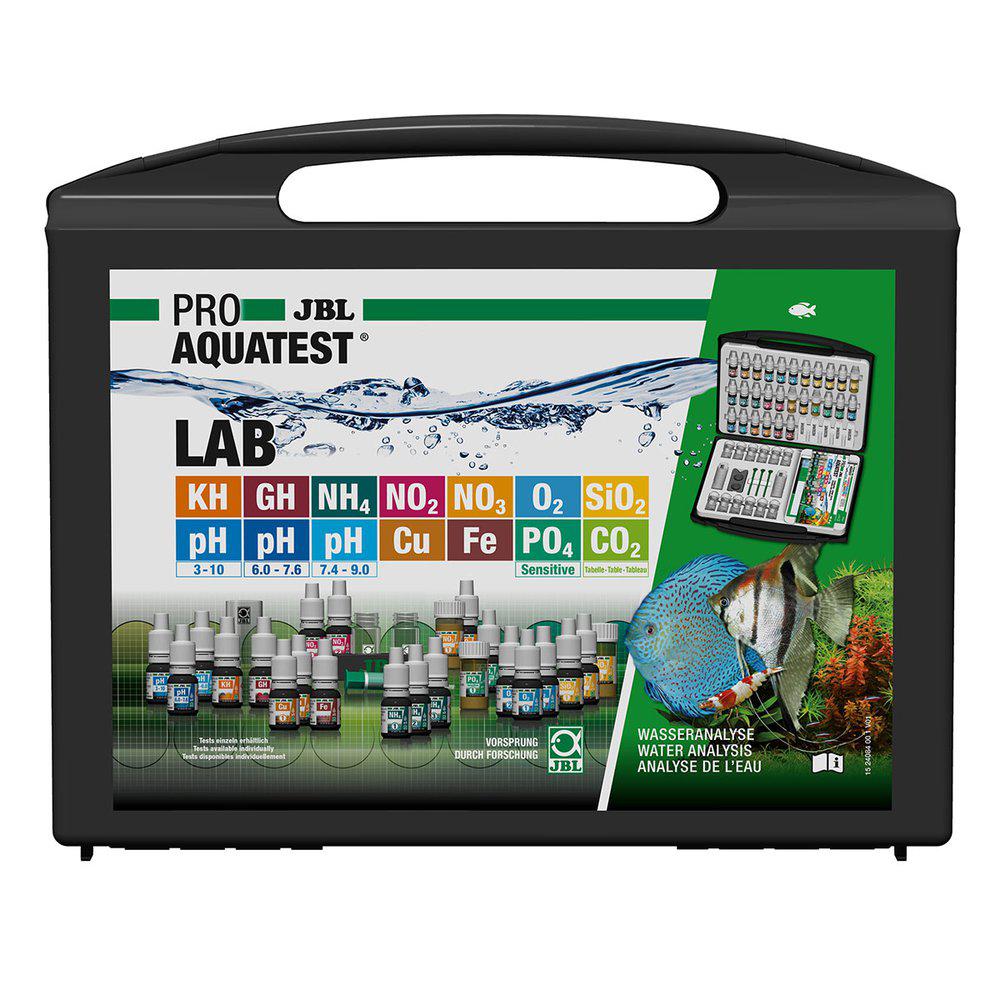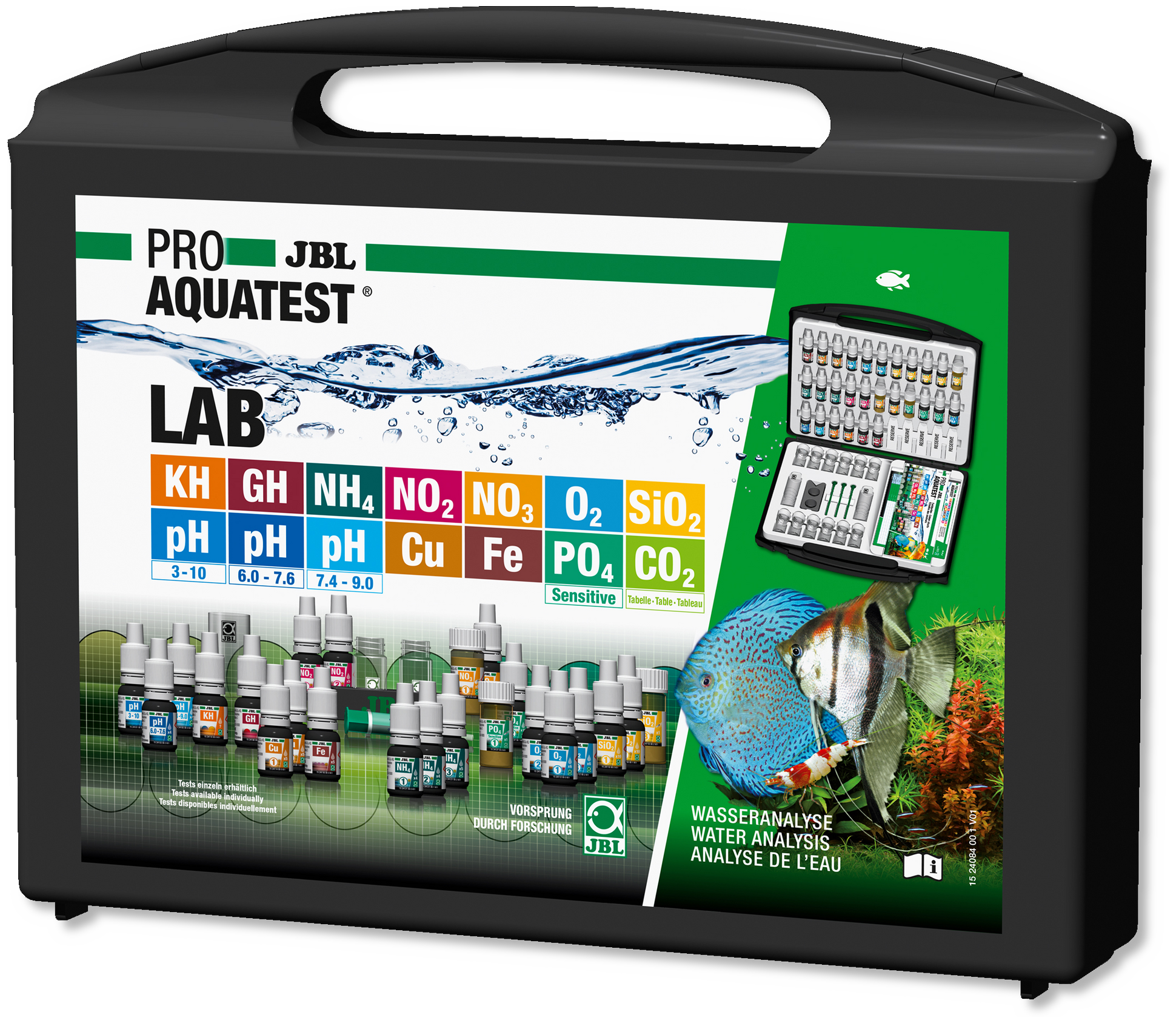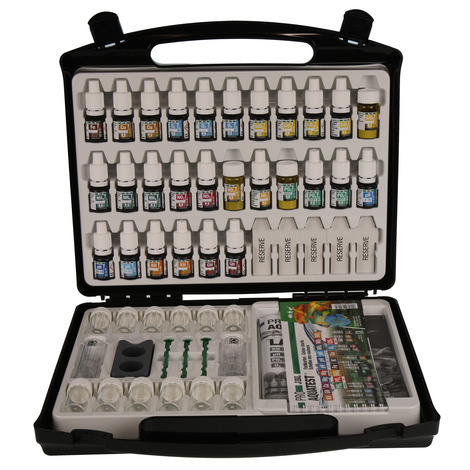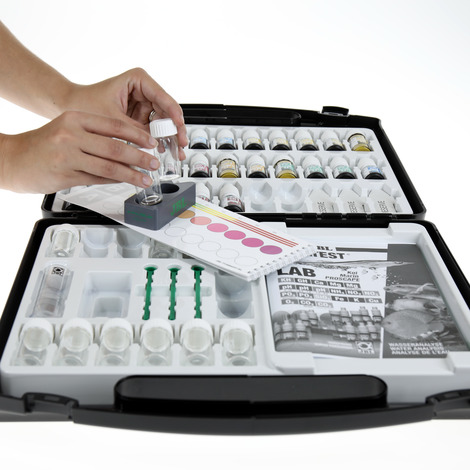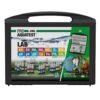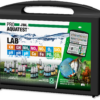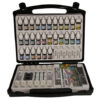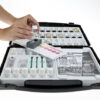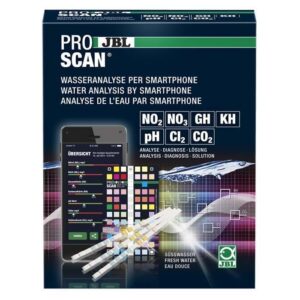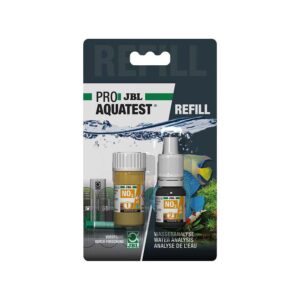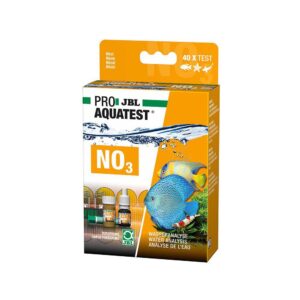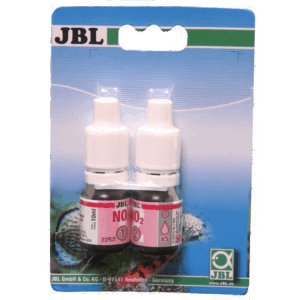Beskrivelse
- Monitors water values in aquariums simply and reliably. Determines pH (3 ranges), carbonate hardness, general hardness, ammonium/ammonia, nitrite, nitrate, phosphate, iron, copper, silicate, oxygen, and, with the help of a table, the CO2 calculation
- Add the reagents to the water samples, compare on the colour chart, read off the values and check the analysis sheet to see which actions are recommended, if any
- Comparator system takes the inherent water colouring into account. CO2-content is determined by pH value and KH value using the table
- Contains a childproof reagent bottle in a waterproof plastic case. Refill reagents are separately available
- Package contents: 1 test case, incl. 13 tests, 12 glass vials, 2 syringes, 3 measuring spoons, thermometer, comparator block, 2 plastic cuvettes, colour charts, CO2 table, pen, report sheets, operating instructions
The following tests are included in the test case:
pH test: water acidity from 3.0 to 10
pH test: water acidity from 6.0 to 7.6
pH test: water acidity from 7.4 to 9.0
O2 test: determination of the oxygen content
GH test: determination of the general hardness
KH test: pH stability of the water (carbonate hardness)
PO4 test: determination of the phosphate content (reason for algae growth and plant nutrient)
Test NH4 / NH3: identifies non-toxic ammonium, uses table to determine any toxic ammonia
NO2 test: determination of nitrogen compound nitrite, which is toxic for the fish
NO3 test: determination of the nitrate content (reason for algae growth and plant nutrient)
Fe test: determination of the iron content to monitor fertilisation
Cu test: determination of heavy metal deadly for invertebrates. Also important for adjusting the dose of therapeutic medications
SiO2 test: determination of the silicates (silicic acid), which cause diatoms
To determine the CO2 content, you just need to measure the pH and KH values. These two values will give you the CO2 content in the water, which then can be referenced from the enclosed table.
Brand
JBL

Vi fant ingen spørsmål, du må gjerne send inn hva du lurer på.

